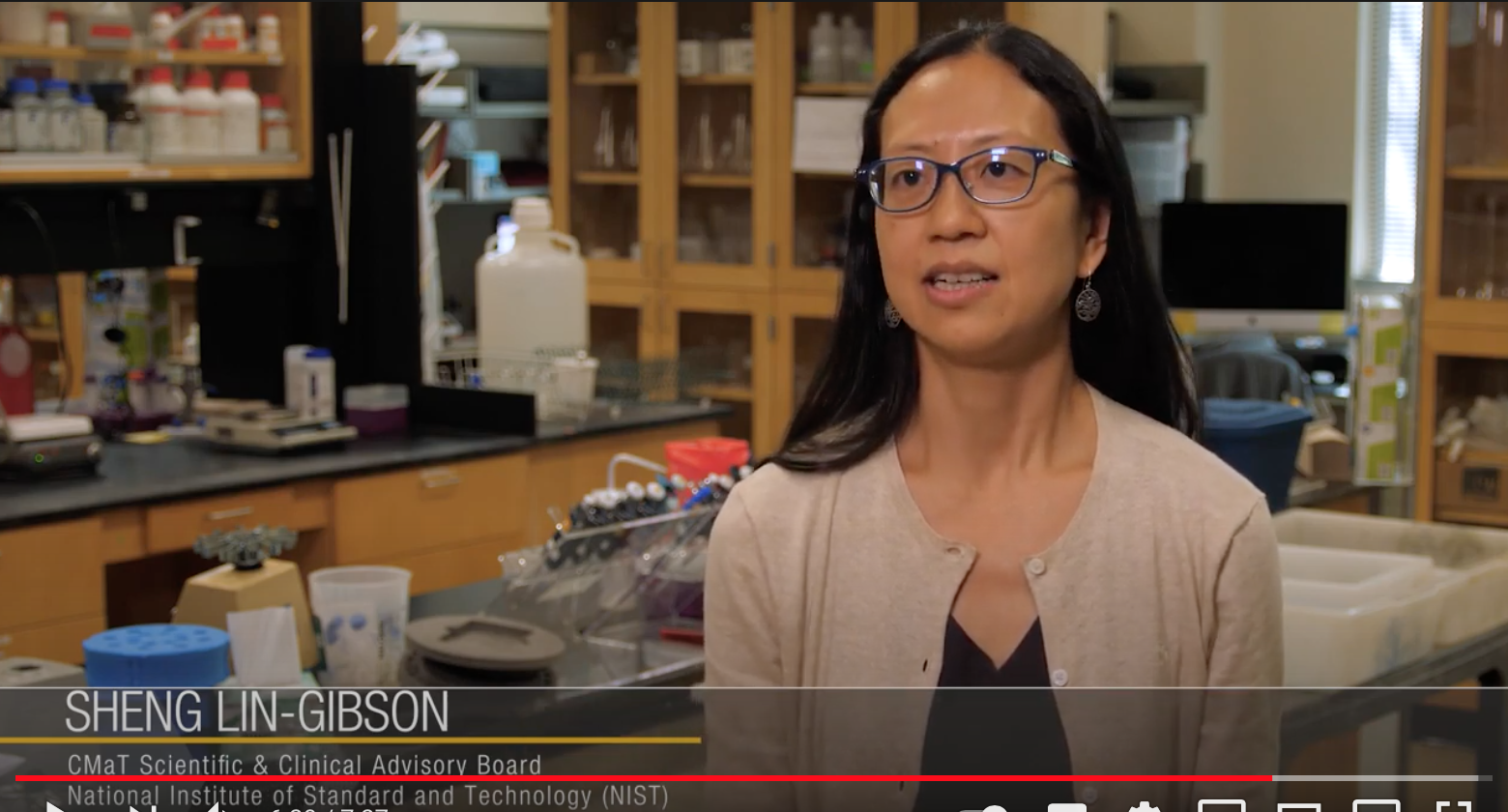Additional Perspectives Added to Graduate Level Course on Engineering Concepts in Therapeutic Cell Manufacturing
Outcome/Accomplishment
The Center for Cell Manufacturing Technologies (CMaT), a National Science Foundation (NSF) Engineering Research Center (ERC) headquartered at the Georgia Institute for Technology, redesigned its graduate-level "Engineering Concepts in Therapeutic Cell Manufacturing" course to better include emerging perspectives from industry partners and governmental leaders.
Impact/Benefits
Experts assert that the cell and gene therapy production industry does not leverage sophisticated techniques and accepted standards to control and assure product consistency and quality, as normally occurs with the manufacture of other goods. The CMaT graduate level course was redesigned to better address this challenge, highlighting practical concerns and regulatory issues relevant to therapeutic cell manufacturing. Industry guests presenting during the Fall 2020 course included: Taby Ahsan, of RoosterBio; Surendra Chavan, from ViCapsys; Greg Russotti, of Century Therapeutics; and Eytan Abraham, Lonza. Sheng-Lin Gibson of the National Institute of Standards and Technology (NIST). Iris Marklein of the Food and Drug Administration (FDA) provided governmental perspectives.
Explanation/Background
CMaT Center Director Krishnendu Roy cites a lack of standards in the field as a major challenge for therapeutic cell manufacturing at scale. He notes, "Everyone does things differently, has different interpretations, and different methodologies and processes." To help counter those shortcomings, CMaT‘s methodology focuses on three areas: what to measure, how to measure, and process scalability (which includes distribution logistics). The additional industry and governmental perspectives provided in the CMaT graduate course enhance classroom insights while also helping to ease students through the transition from hypothetical research to industry-grounded applications at the state, national, and international manufacturing levels.
Dr. Shalu Sari redesigned and successfully led CMaT's multi-institutional course focused on technical issues in cell manufacturing in Fall 2020; an overview is available on the CMaT website. During this initial revised offering, a total of 35 students were enrolled virtually. Students from each of the four primary CMaT campuses, including Georgia Institute of Technology, the University of Georgia, the University of Wisconsin-Madison, and the University of Puerto Rico, Mayaguez Campus, attended. In future offerings, students attending CMaT affiliated schools, such as the University of Pennsylvania, Emory University, the Gladstone Institutes, and Michigan Technological University, may also benefit.
Location
Atlanta, GeorgiaStart Year
Advanced Manufacturing
Advanced Manufacturing
Lead Institution
Core Partners
Fact Sheet
Outcome/Accomplishment
The Center for Cell Manufacturing Technologies (CMaT), a National Science Foundation (NSF) Engineering Research Center (ERC) headquartered at the Georgia Institute for Technology, redesigned its graduate-level "Engineering Concepts in Therapeutic Cell Manufacturing" course to better include emerging perspectives from industry partners and governmental leaders.
Location
Atlanta, GeorgiaStart Year
Advanced Manufacturing
Advanced Manufacturing
Lead Institution
Core Partners
Fact Sheet
Impact/benefits
Experts assert that the cell and gene therapy production industry does not leverage sophisticated techniques and accepted standards to control and assure product consistency and quality, as normally occurs with the manufacture of other goods. The CMaT graduate level course was redesigned to better address this challenge, highlighting practical concerns and regulatory issues relevant to therapeutic cell manufacturing. Industry guests presenting during the Fall 2020 course included: Taby Ahsan, of RoosterBio; Surendra Chavan, from ViCapsys; Greg Russotti, of Century Therapeutics; and Eytan Abraham, Lonza. Sheng-Lin Gibson of the National Institute of Standards and Technology (NIST). Iris Marklein of the Food and Drug Administration (FDA) provided governmental perspectives.
Explanation/Background
CMaT Center Director Krishnendu Roy cites a lack of standards in the field as a major challenge for therapeutic cell manufacturing at scale. He notes, "Everyone does things differently, has different interpretations, and different methodologies and processes." To help counter those shortcomings, CMaT‘s methodology focuses on three areas: what to measure, how to measure, and process scalability (which includes distribution logistics). The additional industry and governmental perspectives provided in the CMaT graduate course enhance classroom insights while also helping to ease students through the transition from hypothetical research to industry-grounded applications at the state, national, and international manufacturing levels.
Dr. Shalu Sari redesigned and successfully led CMaT's multi-institutional course focused on technical issues in cell manufacturing in Fall 2020; an overview is available on the CMaT website. During this initial revised offering, a total of 35 students were enrolled virtually. Students from each of the four primary CMaT campuses, including Georgia Institute of Technology, the University of Georgia, the University of Wisconsin-Madison, and the University of Puerto Rico, Mayaguez Campus, attended. In future offerings, students attending CMaT affiliated schools, such as the University of Pennsylvania, Emory University, the Gladstone Institutes, and Michigan Technological University, may also benefit.

